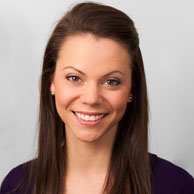

Atlas Featured Content / More From Roxanne Chess-Pierson / More From Nicole Kolenda
Tweet
We are so excited to introduce Roxanne Chess-Pierson, our new Occupational Therapy Supervisor!
Roxanne is a National Board Certified Occupational Therapist who received her Master’s degree from Boston University. Interestingly to note, she studied Psychology as a minor—which truly affects how she approaches her students—always from a place of compassion and understanding. She comes to us from The The McCarton Center for Developmental Pediatrics, where she was the Occupational Therapy Director. Her strong sensory integrative approach is a welcome asset to our students here at the Atlas Foundation for Autism.
Roxanne has contributed to peer reviewed research on motor learning with musical input in the Psychological Research Journal
She has also written quite a few informative blog posts on sensory integration and functional play:
Roxanne creates an individualized sensory profile for each student on her caseload and uses a variety of methodologies to best meet each student’s unique needs-which is why she is the perfect fit for us at Atlas. I sat down and talked a bit with her--
Nicole Kolenda: What got you interested in Occupational Therapy as a career?
Roxanne Chess-Pierson: I became interested in Occupational Therapy very early on for three reasons: First, my mom worked with people with disabilities during de-institutionalization and she would often talk about seeing her students get therapy (physical/occupational) for the first time after being physically restrained for years. Her recounts were so moving that she inspired me to want to going into a "helping profession". A second reason I embarked upon OT is my cousin Zoe (we are almost birthday twins), who has Rett Syndrome--her therapists were amazing and really had an impact on her life. It was considering this, that I realized becoming on OT would be one of the ways I could deeply impact the lives of people with developmental disabilities. Lastly, my aunt is an OT and I truly loved hearing about her work while I was growing up. It was so interesting to hear how she helped children be more successful in different settings. After exploring various therapeutic professions in high school, I decided to apply only to schools with 5-year accelerated OT programs. I knew that this was what I wanted to do.
2. You have mentioned your students "inspire" you--can you elaborate?
 The students always inspire me because they are working ten times harder than any neurotypical individual (excluding people with other differences that make functioning in daily life challenging, such as physical disabilities, MR, and chronic and persistent mental illnesses). When I see a student pointing, gesturing, or using circumlocution, I am always struck by their great patience with us and our need to be patient with them. It is their patience with the social constructs of our world that inspires me. It is their perseverance to express themselves that inspires perseverance within me.
The students always inspire me because they are working ten times harder than any neurotypical individual (excluding people with other differences that make functioning in daily life challenging, such as physical disabilities, MR, and chronic and persistent mental illnesses). When I see a student pointing, gesturing, or using circumlocution, I am always struck by their great patience with us and our need to be patient with them. It is their patience with the social constructs of our world that inspires me. It is their perseverance to express themselves that inspires perseverance within me.
3. You have been trained in a variety of different methodologies--which one resonates most with you?
Ayer's Sensory Integration (SI) is the framework that resonates with me the most. After OT school, as I delved deeper into SI, I began following up on continuing education courses with great hunger. I wanted to better understand how and why SI actually works. In so doing, I came to appreciate the great depth of what SI aims to address. I loved the notion of Jean Ayer's "adaptive response", the potential for real neurological and social-emotional change, and how many psychological theories such as "scaffolding" and "the zone of proximal development" fit neatly within SI.
4. What makes an Occupational Therapy session great?
An OT session needs a lot to happen to be great, in my definition. A great session should be focused around something meaningful for the student (to encourage active participation). Of course, I will want to address treatment goals. Therefore, I individualize goal oriented trecatment activities to make therapy as inherently fun as possible. I find a student’s intrinsic motivation(s) to be very powerful. That type of motivation can be elicited by designing a truly fun experience the student cares about. I engage in the activity with the student, or along side them when I need to spot them for safety, so the student also has a meaningful social experience (social gains are so a fundamental for this population!) So a great session needs to be working towards the student's particular goals while engaging the student, not only in physical participation, but also socially.

Roxanne is available for individual and group therapy sessions at the Atlas Foundation for Autism Monday-Friday. Please contact Nicole at nicole@atlasforautism.org for more information, including booking session(s) and pricing.
When schools are closed, Atlas is open! Program days run from 9:00am to 6:30pm with early drop off and late pick up available. Atlas programs adhere to both social and educational standards for students to build joyful relationships and gain the ultimate learning experiences while schools are not in session.
A documentry about the inspiring relationship between a divorced father with sole-custody of his son, Alex, a non-verbal 16yr old on the autism spectrum. (An Atlas Family)
Employment Opportunities | Contact Us
252 West 29th Street 3rd Floor. New York, NY 10001
Please call us today  and tour our 7300sq ft facility.
and tour our 7300sq ft facility.
Copyright © 2014 - 2021 Atlas Foundation For Autism Inc All Rights Reserved | Privacy Policy | Site Map